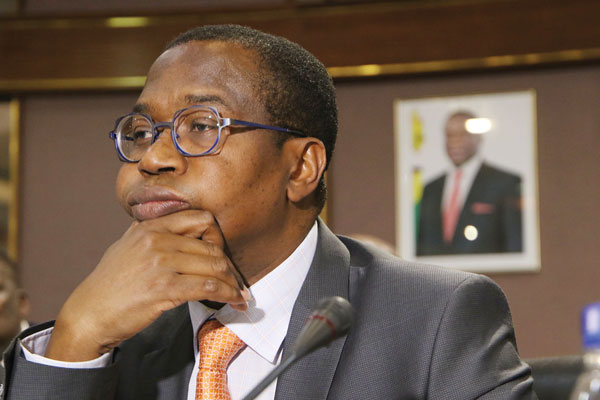
BY BLESSED MHLANGA
Finance minister Mthuli Ncube’s efforts to secure funding from international monetary institutions to stimulate economic recovery will amount to nothing if Harare does not implement political reforms that would compel the United States to lift sanctions, an American economist has said.
Speaking at a policy debate on Zimbabwe at the CATO Institute, an American think-tank, respected economist and journalist Berry Wood said all re-engagement efforts would be in vain if Harare doesn’t shake off the bad boy tag. Ncube attended the event.
Wood said Zimbabwe can only get advice on its Staff-Monitored Programme and no monetary support from the International Monetary Fund (IMF) if the US has not sanctioned the lending.
“The United States has a veto power to the IMF and the World Bank so no money can go from the IMF to Zimbabwe, the arrears have been cleared that’s not a problem, but the IMF can’t do anything unless the United States says okay,” Wood said.
“Without IMF approval and Americans veto, there cannot be a restructuring of the debt and Mr Ncube’s agenda. There cannot be any private lending into Zimbabwe because they wait for an IMF approval.”
Wood added: “Whether there is money coming from the IMF is relatively unimportant at this stage, but those Zidera (Zimbabwe Democracy and Economic Recovery Act) measure prevents the USA from supporting any kind of lending to Zimbabwe beyond the Staff-Monitored Programme, which means no money, just advice and consultation.”
Zimbabwe has been under US sanctions since 2001 following the chaotic 2000 land reform programme under former President Robert Mugabe.
- Chamisa under fire over US$120K donation
- Mavhunga puts DeMbare into Chibuku quarterfinals
- Pension funds bet on Cabora Bassa oilfields
- Councils defy govt fire tender directive
Keep Reading
As part of the embargo, Zimbabwe cannot access funding from the multilateral intuitions such as the IMF and World Bank. Of late, Ncube has been in the US to try to unlock new funding for a country that is desperately in need of foreign capital injection to arrest the deteriorating economic situation that has seen inflation rapidly rising to a new high.
Another economist, Steve Hanke, also said Zimbabwe cannot get any funding from the multilateral institutions unless there were meaningful reforms that will guarantee investor confidence and property rights.
Hanke said Zimbabwe was an important country with rich human resources and a fine education system that had survived through the Mugabe era. The country also has a unique connection with the United States, South Africa and Europe, he added. Zimbabwe boasts of rich deposits of platinum, lithium, coal and diamonds as well as fertile land for agriculture.
The policy talk titled Zimbabwe: Africa’s Shame and Opportunity, held on the sidelines of the annual IMF spring meetings where Zimbabwe extended a begging bowl, also confirmed what opposition Member of Parliament Tendai Biti said last week, that the country was broke.
Woods said unless the politics of the country were fixed, investors will remain on the sidelines.
“Zimbabwe is broke, it has no money at all, even with all these rich resources investors stay away because they are afraid of what is going on, there is no land security and the indigenisation law has been largely repealed except for platinum,” Woods said.
President Emmerson Mnangagwa, during Independence Day celebrations, threatened to introduce people’s shops and clamp down on errant and profiteering business people in a bid to restore purchasing power and bring sanity on pricing, a move likely to cause critical shortages of basics last witnessed in 2008.
Woods said any market-based reforms will not succeed without international help and, therefore, getting the US to lift sanctions was critical.
US has vowed to continue with its sanctions against Zimbabwe until Harare respects human rights.







